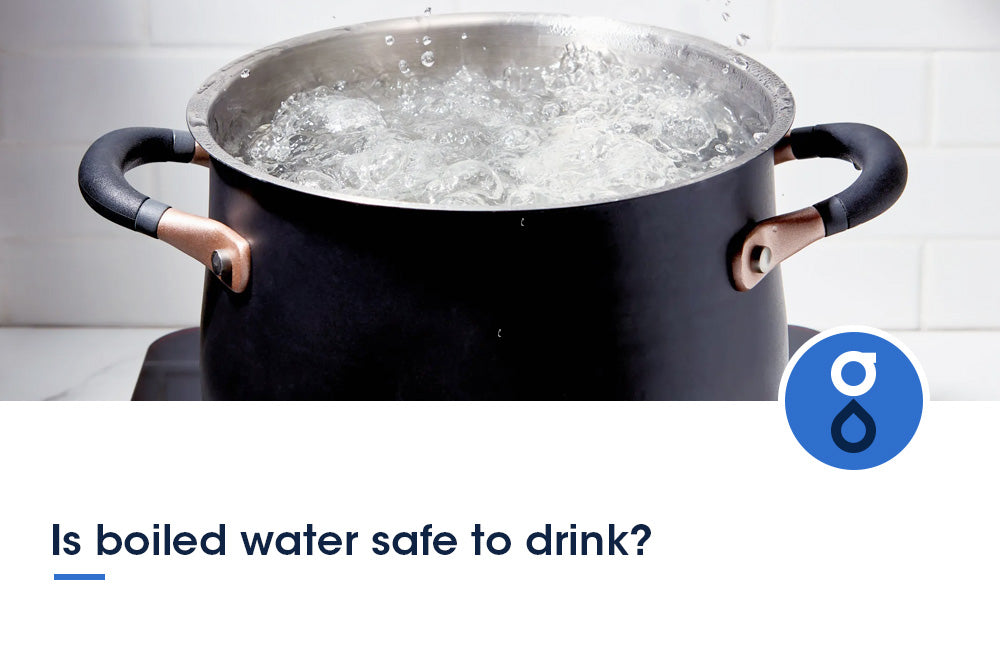Table of Contents:
Definition of an old refrigerator water filter
Causes of old water filters in your refrigerator
Impacts of an old water filter in your refrigerator
Benefits of using a new water filter in your refrigerator
Solutions to improve the quality of your refrigerator`s water filter
Troubleshooting common issues
Conclusion
Access to clean water is essential for keeping your family healthy and hydrated. Unfortunately, many refrigerator owners don't realize the importance of regularly replacing their water filters until too late. This article will discuss the impacts of an old water filter on your refrigerator and the benefits of using a new one. So if you're wondering why that funny smell is coming from your fridge, or the water pressure has suddenly decreased, read on to find out!
Definition of an old refrigerator water filter
An old refrigerator water filter is a filter that has been used for an extended period, usually longer than the manufacturer's recommended replacement time. This type of filter can become clogged over time, leading to reduced flow and increased bacteria and sediment buildup. An old water filter can also lead to unpleasant odors and decreased water pressure. Regularly replacing your water filter ensures you get the cleanest and best-tasting drinking water possible.
Causes of old water filters in your refrigerator
· Lack of regular filter replacement
The consequences of failing to replace your refrigerator filter regularly can be significant and even dangerous. Without regular filter changes, the filter becomes clogged with sediment and other impurities, reducing effectiveness. Over time, this can lead to buildup of contaminants in the water and increased chlorine levels.
Not only does this make the water taste unpleasant, but it can also cause serious health issues such as gastrointestinal problems and skin irritation. Additionally, without an active filter, you are also exposing yourself and your family to potentially harmful substances such as lead or other contaminants that may be present in your drinking water supply.
· Unsafe water supply

Poor quality water supply is one of the leading causes of old water filters in your refrigerator. This can be caused by contaminants such as lead, chlorine, and other industrial waste that can seep into the water supply. To prevent this from happening, it is essential to make sure that you are using a filter designed to remove these contaminants. If you use an inferior filter, it will not be able to remove these contaminants effectively, and you will end up with a contaminated water supply.
· Improper installation
One of the primary causes of old water filters in your refrigerator is improper installation. This could include installing the filter incorrectly, not following the manufacturer's instructions, or failing to clean the area properly before installation.
If the filter was installed improperly, it might be unable to do its job effectively and quickly break down. Additionally, air bubbles can form, which will cause a decrease in performance and increase the likelihood of premature failure.
Impacts of an old water filter in your refrigerator
· Reduced water pressure
Reduced water pressure is a common issue with an old water filter in your refrigerator. As filters age and become clogged, they can become inefficient at filtering out contaminants and particles, leading to reduced water pressure. This could cause the refrigerator to struggle to produce enough ice or cold water, resulting in higher electricity costs. In addition, the lack of adequate filtration can lead to poor-tasting drinking water and possibly even health risks due to contaminants entering your home.
· Poor drinking water quality
Poor drinking water quality can be a severe health concern, as it may contain contaminants or pollutants that can be harmful to your health. While many of us take safe and clean water from our faucets or refrigerators for granted, there are still some areas where the water supply could be more reliable.
To ensure that you and your family are consuming safe drinking water, it is essential to invest in a high-quality filter for your refrigerator. This will help remove any impurities and improve the taste of the water while keeping you safe from any potential harmful chemicals.
· Foul odor and taste
Using an old refrigerator water filter can cause unpleasant odors and tastes in the drinking water. As a filter ages, it becomes clogged with contaminants and can no longer effectively remove them from the water. This results in a buildup of bacteria and other particles, which produces foul odors and tastes. If you notice any foul smells or tastes coming from your fridge’s drinking water, replacing the filter as soon as possible is important.
· Increased risk of bacterial growth

An old refrigerator water filter can be a serious health hazard. As the filter becomes clogged and breaks down over time, it will become ineffective at removing harmful contaminants and pollutants from the water. This can lead to an increased risk of bacteria growth, which can cause a variety of unpleasant and even dangerous health problems.
· Damage to refrigerator components
An outdated refrigerator water filter can cause severe damage to the components of a refrigerator. Old water filters have been known to clog up and cause pressure imbalances in the system, leading to increased wear and tear on the internal parts of your fridge.
As these components wear down, it can lead to higher energy costs due to a decrease in efficiency and potential damage or failure of certain parts. This can create an expensive repair bill if not addressed sooner rather than later.
· Higher energy consumption
The energy consumption of an appliance such as a refrigerator is directly related to the condition and age of its water filter. An old, clogged-up filter will cause the fridge to work harder to achieve the same results. This increased strain can lead to higher electricity bills as the appliance must use more energy to function efficiently.
Furthermore, if left unchecked, this build-up can eventually damage certain internal components, which further exacerbates energy consumption and leads to expensive repair bills.
Benefits of using a new water filter in your refrigerator
Using a new refrigerator water filter is an easy and cost-effective way to ensure you get the best performance out of your appliance. A new filter can remove impurities, pollutants, and harmful contaminants from your drinking water while also improving its taste.
Additionally, using a fresh and clean filter helps maintain the efficiency of your fridge by ensuring that it doesn’t have to work harder than necessary. This can save you money on electricity bills and extend your refrigerator's life span.

Moreover, having a clean and efficient water filter helps prevent any potential damage caused by clogged-up filters, which could lead to more severe issues with the appliance down the line. Investing in high-quality replacement filters like activeated carbon filters for your fridge will keep it running at peak performance levels while providing clean, fresh drinking water free from contaminants or unhealthy particles.
Replacing your fridge water filter with a new and efficient one is an easy way to ensure you drink clean, healthy water and that your appliance runs at peak performance. Ready to learn how to ensure your water filter is in top shape? Read on for solutions to improve the quality of your refrigerator's water filter!
Solutions to improve the quality of your refrigerator's water filter
Cleaning the filter
It's essential to keep your fridge water filter clean. Doing so will help ensure that the quality of the water is as pure and safe as possible. Regularly cleaning the filter will remove any residue and buildup, which can cause discoloration or an unpleasant taste.
Replacing your filter regularly
Replacement water filters is an essential first step in maintaining the quality of your refrigerator's water filter. But to keep it running efficiently and produce the best-tasting, healthiest water possible, you must replace your filter regularly. Depending on your filter type, the manufacturer's instructions will guide how often to change it out. Generally, filters last for about six months before needing to be replaced.
Checking for leaks
It is essential to check if your refrigerator's water filter is leaking. A leak in the filter can cause damage to your refrigerator and contaminate the water, leading to health issues for you and your family. To check for a leak, first, unplug the refrigerator from its power source and make sure the water line is turned off.
Then, inspect all connections between the filter and the lines that come from it. Look for any signs of water leakage, such as wet spots on the floor or walls near the filter connecting to your refrigerator. If you find any leak-evidence, immediately replace the filter and contact a professional.
Running water through the system
Running water through the system is essential to improving the quality of your refrigerator's water filter. To begin, you should remove any filters and attachments placed in the fridge's water line. Then, use a cup to run cold water through the system for at least 10 minutes before reconnecting all parts of the filter. This will help flush out any sediment or debris clogging up the filter.
Troubleshooting common issues

Once you have successfully run water through the system, it is essential to troubleshoot any issues that may arise. One of the most common issues with a refrigerator's water filter is a decrease in water pressure. This can be caused by clogs or blockages in the filter or the lines connected to it. To remedy this issue, cleaning the filter and pipes regularly is essential. It is also helpful to check for any sediment or other materials buildup that could impede water flow.
If these solutions do not work, then it may be necessary to replace the filter entirely. First, shut off your refrigerator's water supply and remove the old filter from its housing. Then securely install a new filter and reconnect all lines before turning on your refrigerator's water supply. Doing this properly should restore your refrigerator's ability to provide filtered drinking water.
Conclusion
It's essential to check your water filter regularly so that you can replace it if needed. I recommend replacing it every six months to ensure the best-tasting water and to avoid any potential hazards of an old filter. When shopping for a water filter, find one that meets your needs and will fit in your refrigerator. That way, you can enjoy fresh, clean and safe water all year round!
Overall, taking care of your refrigerator's water filter is an easy way to ensure you get the best quality of water. With the right filter and regular maintenance, you can ensure your family stays healthy and hydrated for many years!
















